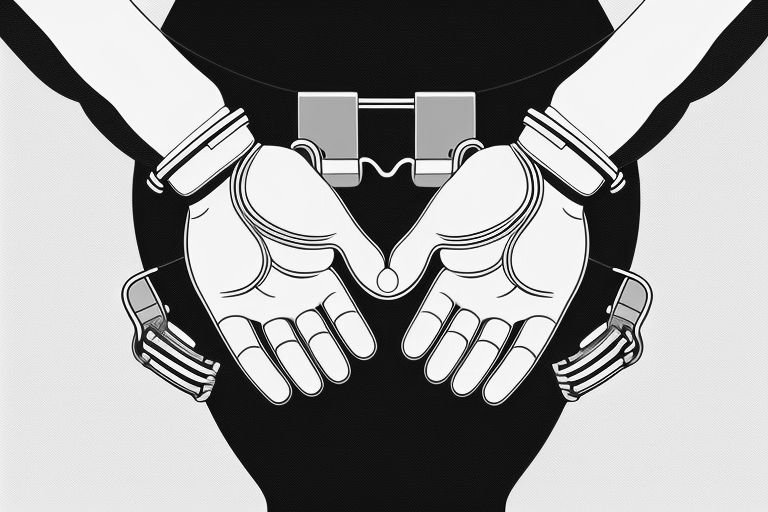Read the headlines. Then remember:
“The arc of the moral universe is long, but it bends towards justice.”
– MLK

In the grand tapestry of history, amidst the rise and fall of empires and nations, one phenomenon has proven to be a relentless adversary of human progress: fascism. It’s a word that conjures images of authoritarian regimes, suppression of free thought, and the tragic consequences of unchecked power. But beneath its imposing facade lies a crucial truth: fascism, with all its grandiose promises and mythologies, is ultimately destined to fail. The Mythology of Power: Why Fascism Always Has and Always Will Fail attempts to unravel the intricate layers of deception that underpin these regimes and expose the inherent flaws that have led to their downfall time and time again.
Consider the myth of invincibility surrounding Russia’s T34 tank—a supposed symbol of the USSR’s military might. Throughout the mid-20th century, stories of its rugged durability and overwhelming numbers painted a picture of invulnerable strength. However, this veneer masked a less glamorous reality. Historical scrutiny reveals that the T34, when compared to its contemporaries like the M4 or the Crusader, fell short in several critical aspects. This discrepancy between myth and reality is emblematic of the broader fabrications that propped up the Soviet regime. While the USA and UK continued to innovate and improve their armored units, leading to advanced designs with superior crew survivability, the USSR clung to an outdated narrative. The persistence of such myths not only handicapped their military capabilities but also contributed to a societal structure built on illusions. These same patterns are visible across various facets of Russian society, starkly contrasting with Western advancements. Through these lenses, we begin to see how the falsehoods inherent in fascist regimes sow seeds of their own destruction. Join us as we dissect these historical patterns and explore why, fundamentally, fascism cannot sustain itself in the face of truth and progress.
The Seductive Power of Propaganda and Ideology

Propaganda and ideology possess a seductive power that can manipulate minds and shape societal beliefs. The allure of propaganda lies in its ability to distort truth, painting a false reality that aligns with the propagator’s agenda. Similarly, ideology serves as a lens through which individuals perceive the world, influencing their values and decisions.
In the context of fascism, the manipulation of propaganda and the reinforcement of a rigid ideology play crucial roles in sustaining power. However, history has shown us that the foundation of fascism is inherently flawed, leading to its inevitable downfall. The very nature of fascism, rooted in authoritarianism and suppression, breeds dissent and resistance.
Despite the temporary allure of power that propaganda and ideology offer, the fundamental principles of fascism make it unsustainable in the long run. The myth of invincibility perpetuated by propaganda cannot withstand the inherent contradictions and injustices perpetuated by fascist ideology. Ultimately, the seductive power of propaganda and ideology is no match for the resilience of truth and justice.
The Fragile Foundation of Fear and Control

The Fragile Foundation of Fear and Control is evident in the history of oppressive regimes. The Mythology of Power explores why Fascism Always Has and Always Will Fail. Fear and control are the cornerstones of fascist ideologies. The manipulation of mass fear is a key tool used by oppressive regimes to maintain control over the population. However, history has shown us that this foundation is fragile and unsustainable.
The Mythology of Power delves into the inherent weaknesses of fascist systems. By spreading fear and enforcing control through authoritarian means, fascist leaders create a volatile environment that ultimately leads to their downfall. The illusion of power is shattered when the people rise up against oppression.
Understanding the delicate balance between fear and control is crucial in analyzing the failure of fascist regimes throughout history. The Fragile Foundation of Fear and Control serves as a cautionary tale, highlighting the inevitable collapse of systems built on manipulation and tyranny.
Economic Fallacies: The Illusion of Prosperity

Economic fallacies often lead to the illusion of prosperity. Many believe that embracing extreme ideologies like fascism can bring about economic success. However, history tells us a different story. The mythology of power surrounding fascism has always ultimately led to failure.
Governments built on the foundation of fascism may initially seem powerful and promising, but their unsustainable practices reveal cracks in their system. The centralization of power and suppression of individual freedoms hinder true economic growth and innovation.
The short-term gains seen under fascist regimes quickly give way to long-term consequences. The reliance on authoritarian control stifles creativity and entrepreneurship, leading to an inevitable economic downturn. The illusion of prosperity shatters as the reality of limited opportunities and resources sets in.
Understanding the fallacies behind the allure of fascism is crucial to preventing its recurrence. By recognizing the historical patterns of failure, we can strive for sustainable economic systems that prioritize individual liberties and long-term prosperity.
The Erosion of Human Rights and Individual Liberties

In a world where the erosion of human rights and individual liberties is becoming increasingly prevalent, the importance of upholding these fundamental aspects cannot be overstated. The rise of authoritarian regimes throughout history has often led to the suppression of basic freedoms and the subjugation of the populace.
The mythology of power is a dangerous narrative that fuels the ideology of fascism, where a single entity seeks to control every aspect of society. However, history has shown us time and time again that such systems are destined to fail.
By understanding why fascism always has and always will fail, we can protect our human rights and individual liberties from being trampled upon. The inherent flaws within authoritarian regimes, rooted in their disregard for the inherent dignity and rights of every individual, ensure their eventual downfall.
It is imperative that we remain vigilant and steadfast in our commitment to upholding human rights and individual liberties, for it is only through this unwavering dedication that we can safeguard our freedoms for generations to come.
Cultural Stagnation: Art, Literature, and Expression under Fascism

Cultural stagnation thrives under fascist regimes where art, literature, and expression are heavily censored and controlled. The suppression of creativity and free thought is a cornerstone of fascist ideologies, hindering cultural development and innovation. Artists and writers often face strict guidelines, limiting their ability to produce meaningful and thought-provoking work.
In the realm of art, fascist regimes promote a narrow and propagandistic aesthetic that glorifies the state and its leaders. Any deviation from this prescribed style is met with harsh consequences, stifling artistic diversity and experimentation. Literature suffers a similar fate, with books and writings that oppose the regime being banned or destroyed, erasing important voices from the cultural landscape.
Expression under fascism becomes a dangerous act, as individuals risk persecution for speaking out against the government. Fear and self-censorship become prevalent, leading to a homogenized society devoid of dissenting opinions. This cultural suppression ultimately contributes to the downfall of fascist regimes, as the stifling of creativity and intellectual freedom weakens the societal fabric from within.
International Isolation and Conflict: The High Price of Expansionism

In the realm of international relations, the high price of expansionism often leads to isolation and conflict. When nations pursue aggressive expansionist policies, they risk alienating other countries and sparking tensions that can escalate into full-blown conflicts. This thirst for power and control, a core tenet of fascism, has historically proven to be unsustainable and detrimental to global stability.
The mythology of power perpetuated by fascist regimes is built on the false premise of invincibility and superiority. However, history has shown time and again that such ideologies are inherently flawed and destined to fail. The quest for domination through expansionism only serves to isolate nations on the world stage and breed animosity among neighbors.
Ultimately, the allure of power through expansionism is seductive but ultimately self-destructive. As we delve deeper into the complexities of international relations, it becomes evident that the high price of expansionism is not worth the inevitable isolation and conflict it brings. Why fascism always has and always will fail lies in its misguided belief in the sustainability of power through aggression.
Resistance and Revolts: The Inherent Struggle for Freedom

Resisting oppressive regimes and revolting against tyranny have been ingrained in humanity’s pursuit of freedom throughout history. The struggle for liberation is often met with formidable challenges, but it is a testament to the indomitable spirit of individuals and communities.
Power-hungry ideologies like fascism have consistently faced resistance due to their inherently oppressive nature. The very foundation of fascism is built on control, suppression, and the subjugation of individuals’ rights and freedoms. This goes against the innate desire of human beings to live autonomously and with dignity.
History serves as a stark reminder of the failures of fascism, as illustrated by numerous revolts and uprisings against totalitarian regimes. The resilience of people in the face of such oppressive systems highlights the unwavering commitment to uphold freedom and democracy.
In essence, the mythology of power perpetuated by fascism is destined to crumble under the weight of collective defiance and the unyielding pursuit of liberty. The struggle for freedom remains a timeless and universal endeavor that transcends boundaries and ideologies.
Legacy of Failure: Learning from History’s Repetitive Patterns

Throughout history, the legacy of failure has been a recurring theme, especially when examining the rise and fall of fascist regimes. The mythology of power that surrounds fascism ultimately leads to its downfall, as history has repeatedly shown. Understanding why fascism always has and always will fail is crucial in preventing its destructive patterns from resurfacing.
One key factor in the failure of fascism lies in its oppressive nature, which ultimately alienates the very people it aims to control. The excessive concentration of power in the hands of a few authoritarian leaders leads to internal conflicts and resistance from the populace. Additionally, the inherent violence and suppression used to maintain control only fuel further opposition and eventually contribute to the regime’s collapse.
By learning from history’s repetitive patterns, we can see that fascism’s reliance on fear, propaganda, and division as tools of control ultimately sow the seeds of its downfall. Recognizing these warning signs and understanding the reasons behind why fascism always fails can help societies safeguard against its resurgence in the future.
The Inevitable Downfall: Why Fascism’s Demise is Inevitable

Despite its allure, history proves that fascism’s demise is an inevitable reality. The Mythology of Power surrounding fascist regimes often masks their intrinsic weaknesses. From Adolf Hitler’s Nazi Germany to Benito Mussolini’s rise to power in Italy, the facade of strength crumbles under the weight of its oppressive nature.
The very essence of fascism, built on fear and control, sets the stage for its downfall. Totalitarian rule alienates the masses, creating a powder keg of resistance. The brutal suppression of dissent only fuels the flames of rebellion, ensuring that fascism always has and always will fail, but that toppling requires the gravity of objective awareness, empowerment, and ultimately resistance.
Moreover, the economic unsustainability of fascist policies adds to its downfall. By prioritizing militarization and expansionism over the well-being of its citizens, fascist regimes sow the seeds of their own destruction. The inevitable collapse of such systems is not a matter of if, but when.
Ultimately, the Mythology of Power that fascists propagate is their Achilles’ heel. The facade of invincibility shatters when faced with the resilience of the human spirit. Fascism’s demise is not a question of possibility but a certainty written in the annals of history.

